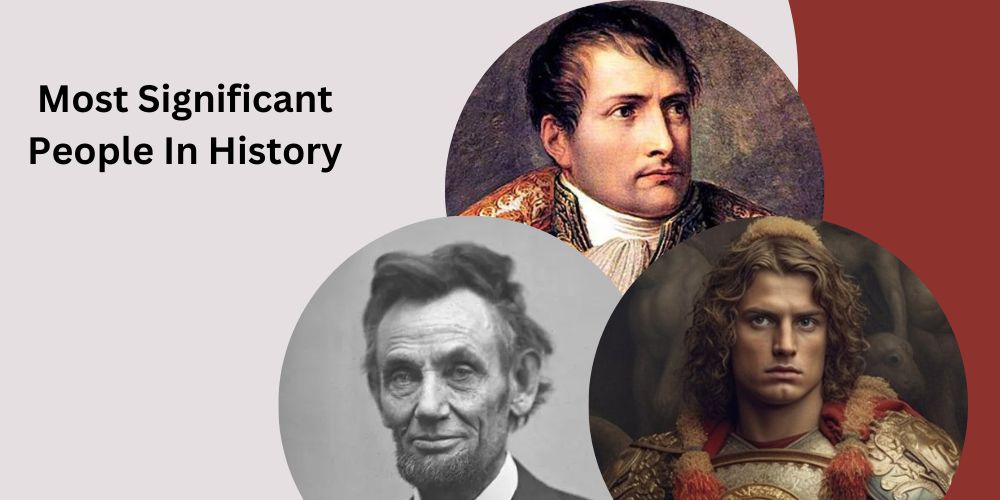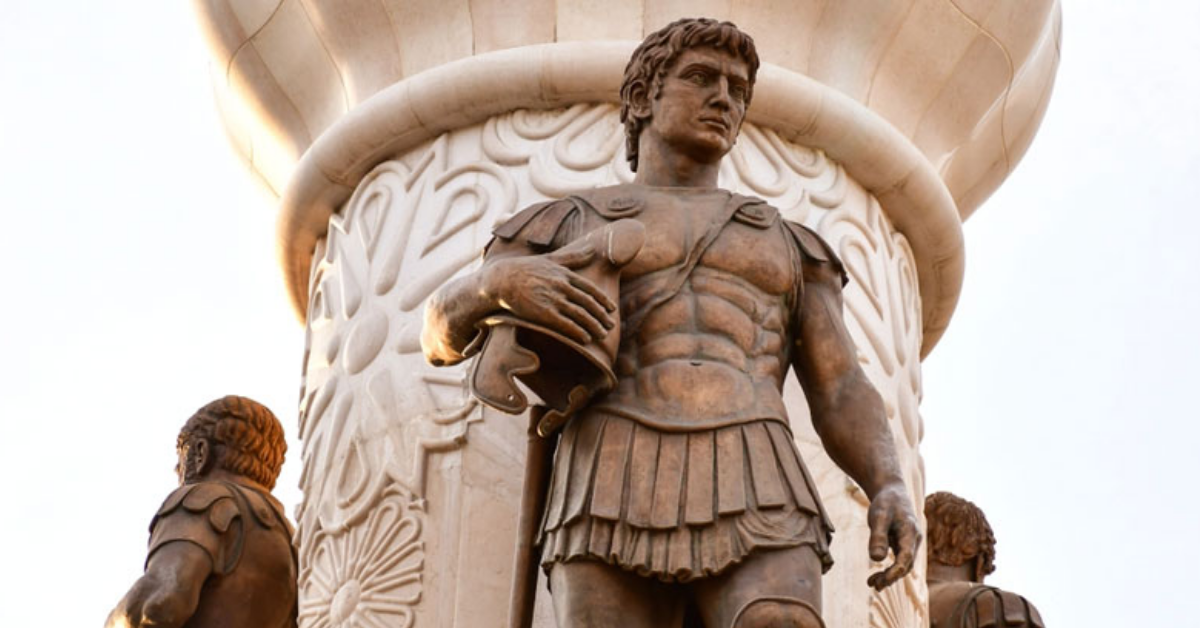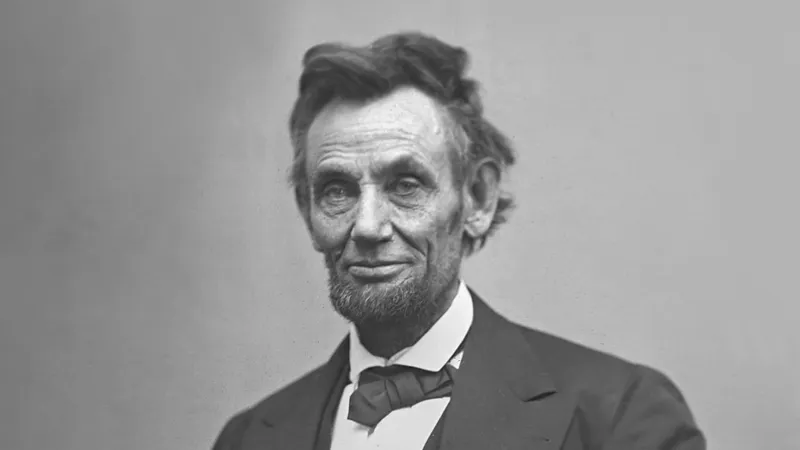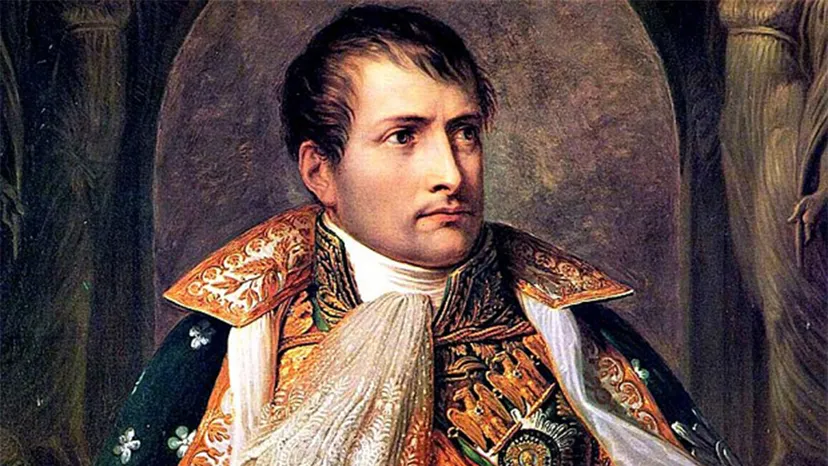Throughout human history, certain individuals have emerged as towering figures whose impact transcends their own time and influences the course of civilizations. These remarkable men through their innovative ideas, profound insights, and transformative actions, have made an enormous contribution to the development of human existence. In this article, we explore the lives of these individuals, their legacy and contributions that have shaped the very essence of human existence. From religious prophets and philosophical luminaries to scientific innovators and political leaders, here are the 10 most significant people in history.
1. Jesus Christ
Jesus Christ was Jewish preacher and religious leader. He is the founder central figure of Christianity, the world’s largest religion. Most Christians believe Jesus to be the incarnation of God the Son and the awaited messiah. Aside from pioneering the Christian faith, Jesus teachings and life have profoundly influenced Western civilization and beyond.
Jesus is also revered in the Islam, Baháʼí Faith and Druze Faith. His historical legacy is far-reaching, encompassing religious devotion, ethical principles, cultural expression, and historical chronology. His influence continues to shape diverse aspects of human civilization, making him one of the most significant figures in history.
2. Prophet Muhammad
Prophet Muhammad was an Arab religious, social, and political leader and the founder of Islam. He is regarded by Muslims as the last prophet and messenger of God (Allah). his form the cornerstone of Islamic theology. Aside role extended beyond being a religious leader; he was also a statesman and military leader.
While Muhammad’s historical legacy is primarily viewed through the lens of Islamic tradition, his impact extends to the broader world, shaping the course of history in the Middle East, North Africa, and beyond. His establishment of the first Islamic state in Medina marked the beginning of a new political and social order.
3. Alexander the Great
Alexander the Great was a king of the ancient Greek kingdom of Macedon. He ascended the throne in 336 BC at the age of 20 and spent most of his ruling years conducting a lengthy military campaign throughout Western Asia and Egypt. By the age of 30, he had created one of the largest empires in history, stretching from Greece to northwestern India.
Alexander’s life and achievements have made him a symbol of ambition, conquest, and greatness. His legacy has been romanticized and celebrated in literature, art, and popular culture throughout the ages. His conquests spread Greek culture and Hellenistic influence across the known world, creating what is known as the Hellenistic period.
4. Julius Caesar
Julius Caesar is prominent Roman military general best known for his military campaigns in the Gallic Wars and the subsequent civil war. He is also a statesman and dictator who played a critical role in the events that led to the demise of the Roman Republic and the rise of the Roman Empire, one of the greatest civilization in history.
After defeating his political rival Pompey in a civil war, Julius Caesar subsequently became a dictator. As a ruler of Rome, He implemented a series of political and social reforms, including the Julian Calendar, which served as the basis for the modern calendar. He was however assassinated by a group of senators led by Brutus and Cassius on the Ides of March 44 BC.
5. Mahatma Gandhi
Mahatma Gandhi was an anti-colonial nationalist and political ethicist who employed nonviolent resistance to lead the successful campaign for India’s independence from British rule. His influence extends far beyond the Indian subcontinent, impacting global movements for civil rights, freedom, and nonviolent resistance.
Gandhi’s principles of nonviolence and civil disobedience have inspired movements and leaders around the world. Figures like Martin Luther King Jr., Nelson Mandela, and Cesar Chavez drew inspiration from Gandhi’s approach to social and political change. He is no doubt one of the most significant people in history as he is seen as an enduring symbol of peace, tolerance, and human rights.
6. Abraham Lincoln
Abraham Lincoln was the 16th president of the United States, from 1861 until his assassination in 1865. He is often considered by many the greatest American president of all time, as he successfully led the country through a civil war, abolished the slave trade, expanded the power of the federal government, and modernized the country’s economy.
Prior to his presidency, Lincoln was a self-educated lawyer, a Whig Party leader, Illinois state legislator, and U.S. congressman from Illinois. He was also a leader of the new Republican Party. Lincoln ran for president in 1860, led the country through a series of reform before getting re-elected in 1864. He was however assassinated on On April 14, 1865
7. Isaac Newton
Sir Isaac Newton was an English polymath active as a mathematician, physicist, astronomer, alchemist, theologian, and author who was described in his time as a natural philosopher. He was a key figure in the Scientific Revolution and the Enlightenment era that followed. He is considered one of the greatest and most influential scientists in history.
Newton formulated the laws of motion and universal gravitation that formed the dominant scientific viewpoint for centuries until it was superseded by the theory of relativity. He also made seminal contributions to optics, and shares credit with German mathematician Gottfried Wilhelm Leibniz for developing infinitesimal calculus,
8. Albert Einstein
Albert Einstein was a German-born theoretical physicist, popularly known for developing the theory of relativity. He also made important contributions to quantum mechanics, and was thus a central figure in the revolutionary reshaping of the scientific understanding of nature that modern physics accomplished in the first decades of the twentieth century.
Albert Einstein is widely considered to be one of the greatest and most influential scientists of all time. He received the 1921 Nobel Prize in Physics “for his services to theoretical physics, and especially for his discovery of the law of the photoelectric effect”. His intellectual achievements and originality have made the word Einstein broadly synonymous with genius.
9. Napoleon Bonaparte
Napoleon Bonaparte, often known simply as Napoleon, was a French military and political leader who rose to prominence during the French Revolution. He is considered by many one of the greatest military generals in history, for his tactical brilliance and for leading many successful campaigns during the Revolutionary and Napoleonic Wars.
Napoleon’s impact on Europe was profound. While he is often associated with military conquest and authoritarian rule, his legal reforms, administrative efficiency, and the spread of nationalist ideals left a lasting imprint on European societies.
10. Leonardo da Vinci
Leonardo da Vinci is an Italian polymath of the High Renaissance considered a genius in multiple fields such as art, science, and engineering and one of the most significant people in history. He is widely regarded to have been a genius who epitomized the Renaissance humanist ideal.
Leonardo Da Vinci was a painter, draughtsman, engineer, scientist, theorist, sculptor, and architect. While his fame initially rested on his achievements as a painter, he has also become known for his notebooks, in which he made drawings and notes on a variety of subjects, including anatomy, astronomy, botany, cartography, painting, and paleontology.





